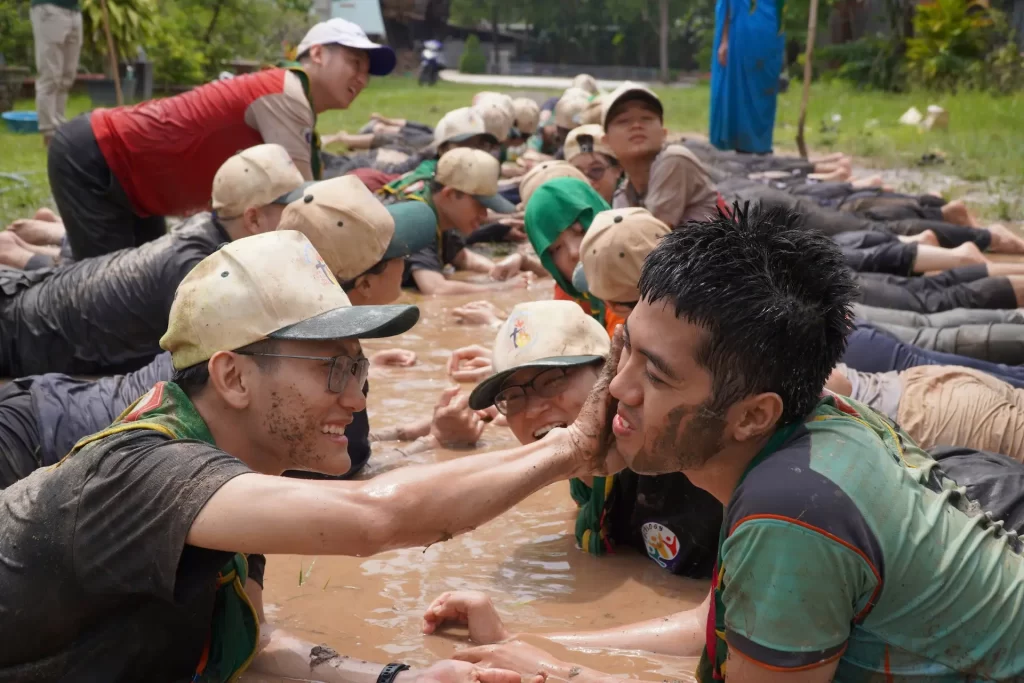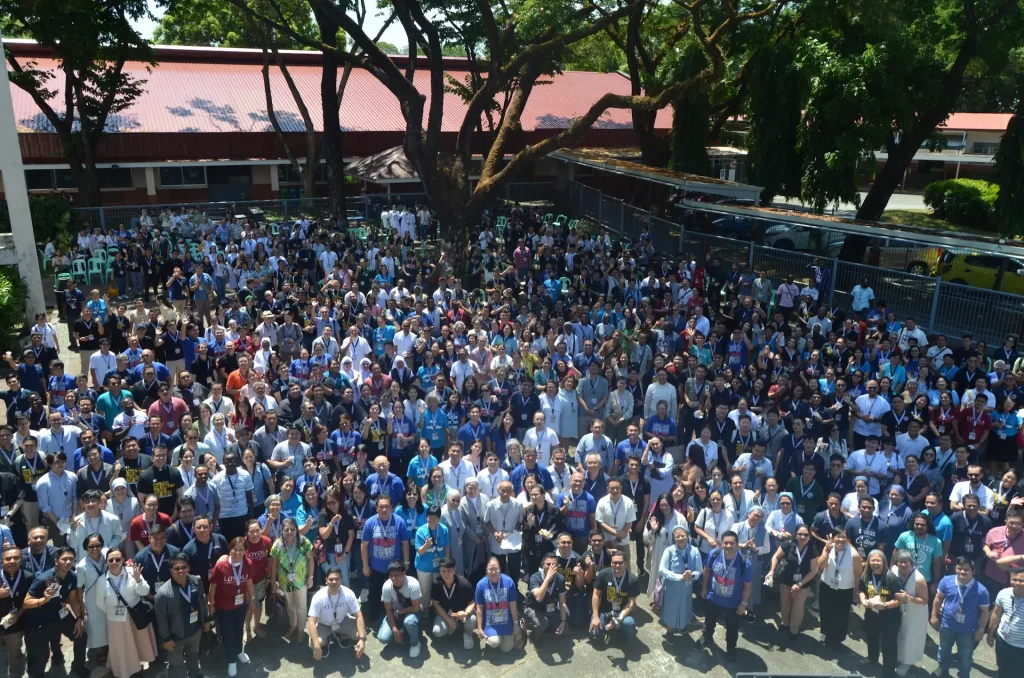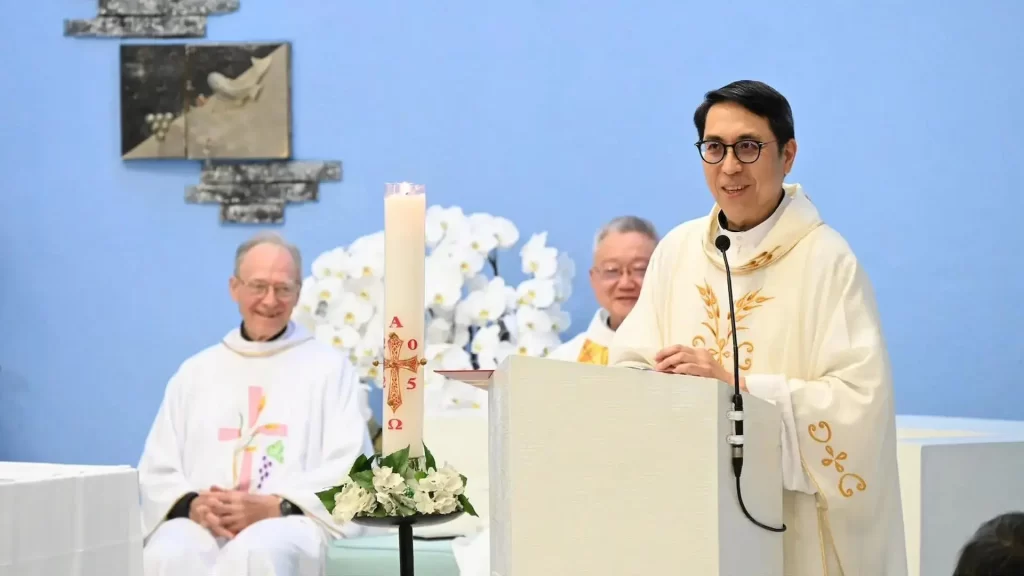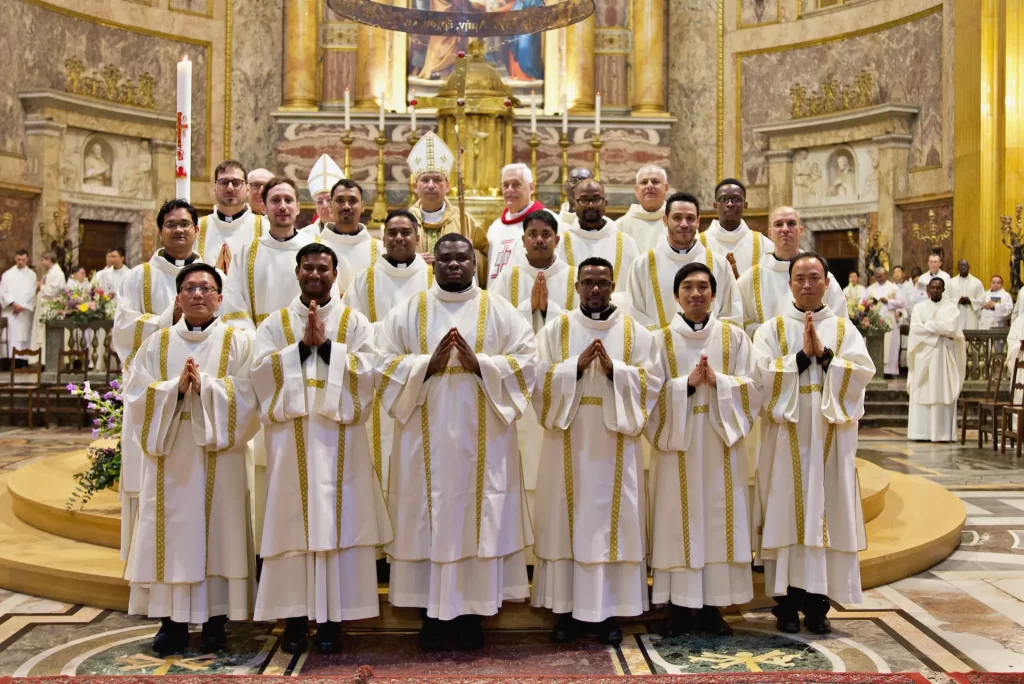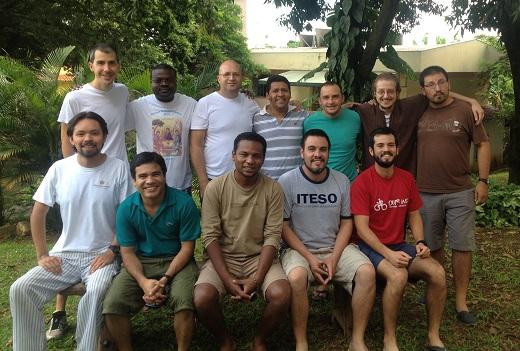
After a 30-hour flight (from Singapore to Barcelona to São Paulo, then to Belo Horizonte), 34 if I include the Dili to Singapore flight, we finally arrived in Belo Horizonte airport on January 29. The rector, Fr Edison de Lima SJ and two other scholastics came to meet us, and we then drove for another hour to Faculdade Jesuita de Filosofia e Teologia (FAJE). The first three days after our arrival were spent getting to know the members of the community. On February 2 we formally started our studies, with eight of us in the first year – a Venezuelan, a Brazilian, a Chilean, two Méxicans, a South African who is Portuguese, and two Timorese.
Community Life. There are 34 scholastics doing their theology studies in FAJE. We live in three small houses. Two houses are located ten minutes away from the campus. Albino Gonçalves SJ is staying in one of those houses. My community is located inside the campus. Consequently, most of the time, Albino and I only meet in the classroom. In the community where I live, there are scholastics from Chile, the USA, Venezuela, México, Peru, Bolivia, Brazil, Colombia, Poland, and one priest from Mozambique. Albino’s community is composed mainly of scholastics from South America.
Study Life. In FAJE, the school year starts in February, and on February 2, we started our intensive course on Introdução a Teologia and Introdução a Bíblia. It is a one-month intensive course which makes it more like a summer course. After two weeks of attending the classes we were told we could be dispensed from the two subjects since we already took those two subjects in the Ateneo de Manila University. We only realized this after we presented our Ateneo documents to FAJE. Despite that, the two of us still attended the classes for the sake of habituating ourselves with the new way of learning and to practice listening to a Portuguese lecturer. The intensive course ended on Friday, February 27. On March 2, we started our first semester, and Albino and I have taken four subjects each.
Life in a new continent. Language is obviously a challenge. Coming to a new country without speaking the language is really hard — worse, if one had to study theology in that language. I think Albino and I have been encountering this challenge since our arrival. We have been struggling to express ourselves in the classroom and in the community too.
Nevertheless, we had the chance to learn Portuguese in the last two weeks of February. The rector found a trained Portuguese language teacher who also taught our Latino batch mates who had arrived a month earlier. We had classes with her every day initially but sadly, we cannot continue doing this in the coming months because regular classes have started in FAJE.
Living in a new continent can also be a challenge. Perhaps, I can sum up the experience with the idea of how being an Eastern-oriented person living in a Western-oriented culture demands one to be flexible with one’s way of looking at things, one’s way of thinking, and perhaps one’s way of living life — without losing one’s originality. Albino and I therefore are adapting our lives in a new culture, in a new country, in a new continent as Timorese; which, I must admit, is not easy.
In addition, as a Jesuit, living in a new Jesuit community in a new continent makes me see the universality of our Jesuit identity. The community here practices what we practised in our previous communities. We do manualia, we take turns in preparing breakfast, we have dos and don’ts. We also have community sharing, not to mention the observance of our Jesuit vows here. Certain things, of course, are done differently. The idea is that one is not better than the other; we are just different. For example, our cook here prepares meals only for lunch; we have to find our own meals for dinner. I was told that as a general practice here in Brazil, no one cooks for dinner.
So, here Albino and I are entering into the next stage of our Jesuit life and formation by learning and doing theology. I hope I can make this new stage a time for serious investment and commitment both in my studies and in my spiritual life. Looking forward to the path ahead, I hope to be reminded always by the words uttered by Pope Francis that, “one learns theology on one’s knees”.
Let us continue to lift each other up in our time with the Lord.



